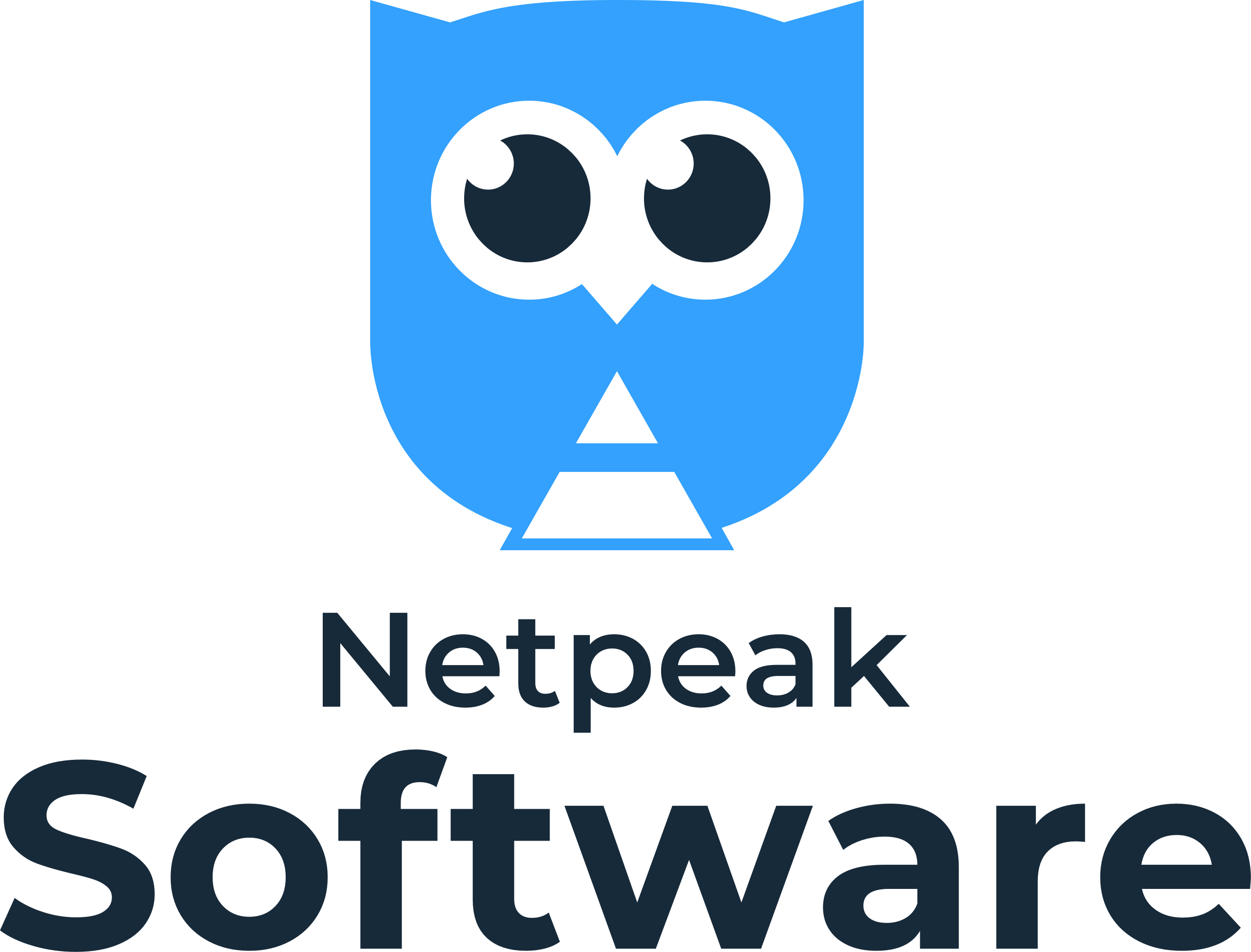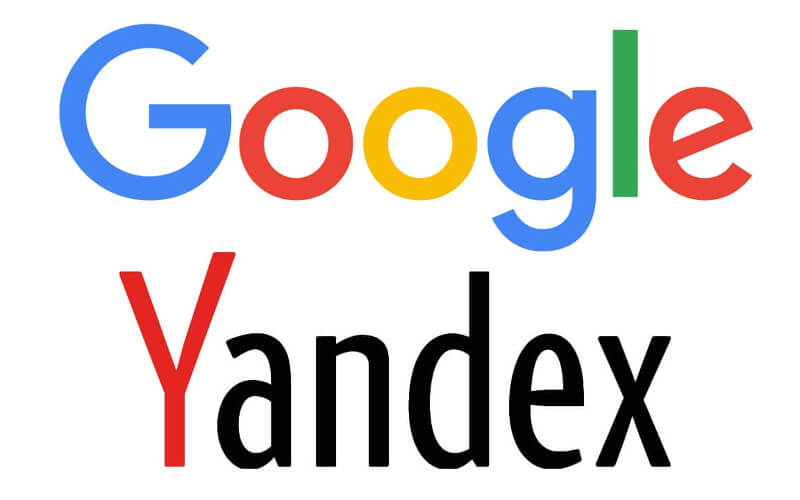
Everyone who works with websites and fills them with content knows about the Advego exchange. She was one of the first and is known for her strict approach to cooperation between customers and freelancers.
But Advego still has a number of additional tools that not everyone knows about. And in vain, because they help a lot in checking the quality of content. Therefore, in this publication, we will consider 3 useful tools: SEO analysis of the Advego text, Advego Plagiatus software and its online version.
SEO text analysis on Advego
Semantic text analysis is one of the indispensable tools on Advego. It is very easy to use: just go to https://advego.com/text/seo/, insert the text and click the "Check" button. After that, you can view the received data.
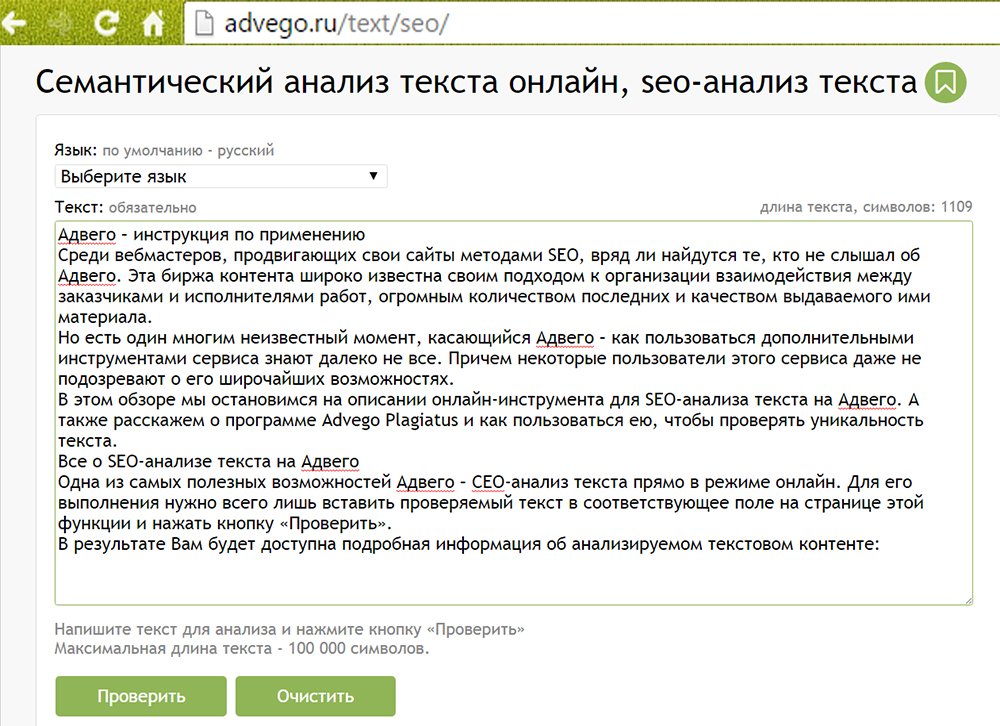
In the first block "Text Statistics" the most interesting points are:
- "Water";
- "Classic nausea";
- "Academic nausea".
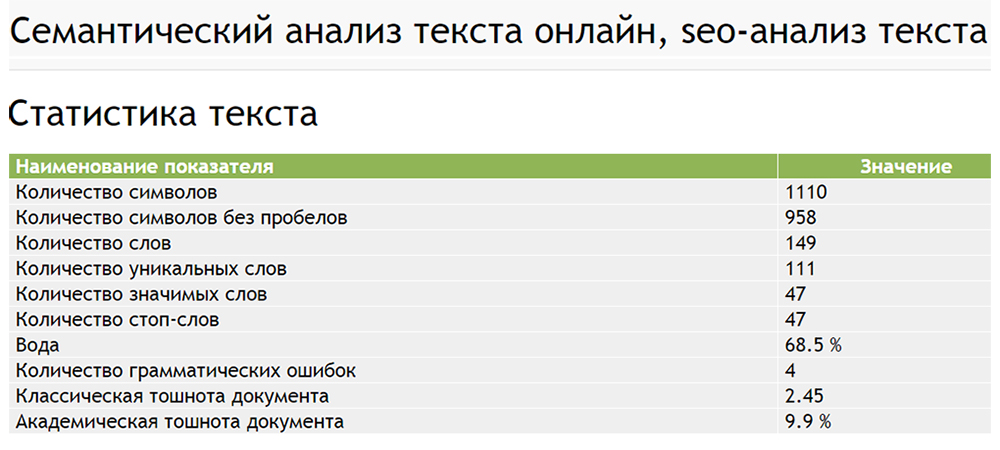
The water percentage of the text is displayed in the "Water" item. It shows the ratio of insignificant words that do not carry any meaning (parasite words, introductory words) to the total number of words in the text. According to the creators of the service, the optimal value is 65-70% of water.
Important : If you have a large project, we recommend ordering a reliable VPS server and ensuring stable operation of the site.
Classical and academic nausea show the degree of inflammation with keywords. The first value should be around 3, and the second should be around 9%. But again, this is according to Advego's recommendations.
The second block "Semantic core" shows key phrases , their number and frequency. The last indicator of each keyword should be no more than 3.5-4%.
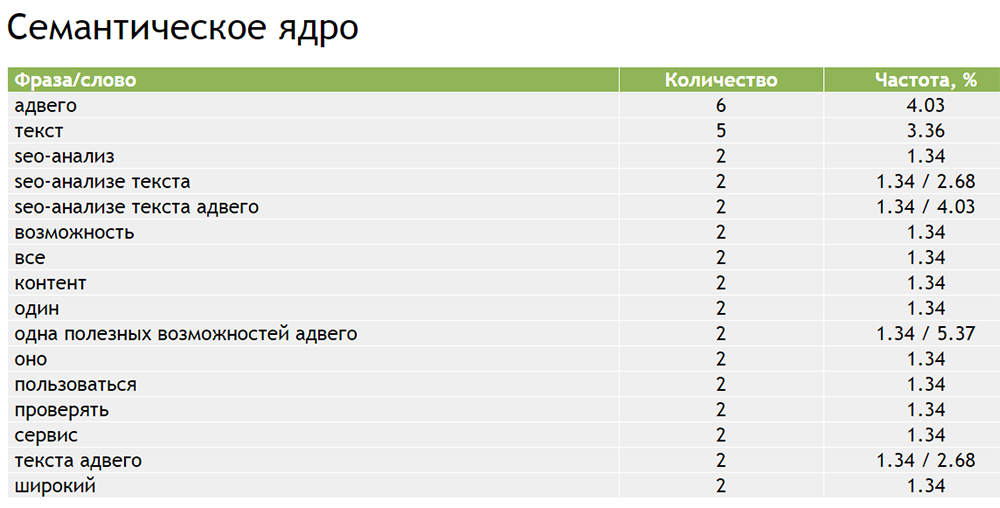
The third block shows the same thing, but for each individual word. While the second block may contain phrases of 2-4 words. The frequency of non-keywords should not exceed 4%, otherwise search engines will consider them relevant to the page and will not display it for the queries you wanted.
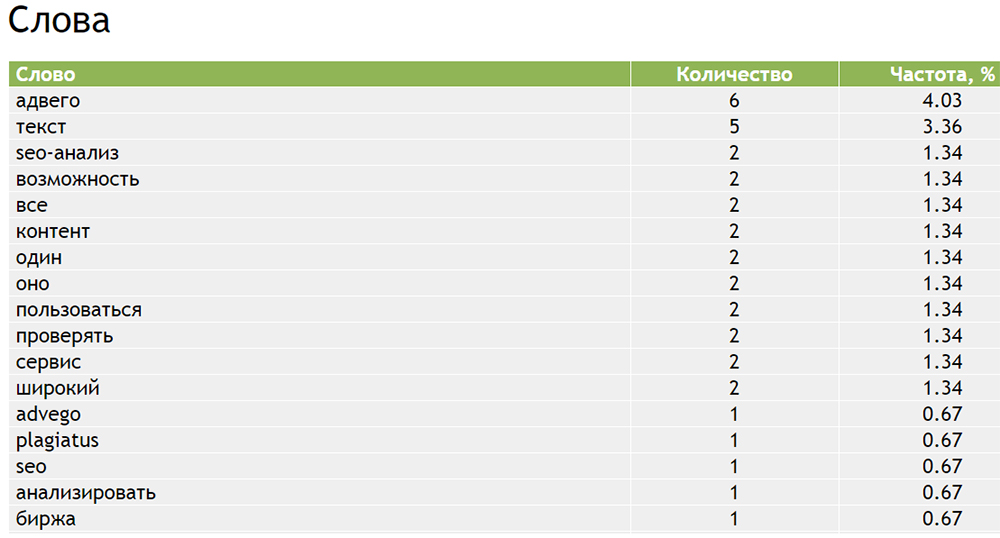
And the last block "Stop words" contains a list of prepositions and other introductory words that are not taken into account by search engines. Their number and frequency is displayed nearby.
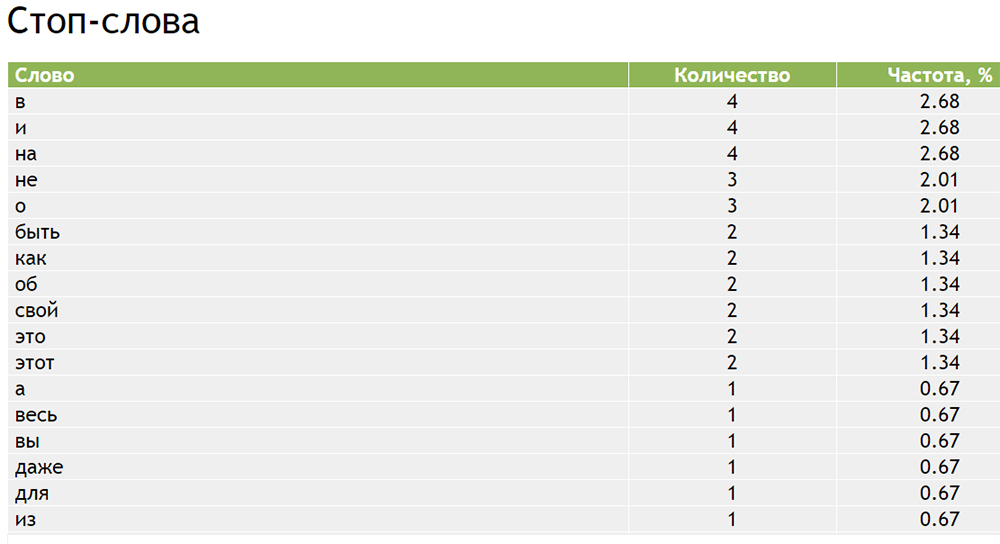
Thus, this Advego text checking service provides complete information about its content and keywords. Based on it, you can competently optimize the content for the required requests and make it more qualitative both for users and for search engines.
How to work with the Advego Plagiatus program?
Advego Plagiatus is a desktop program that must be downloaded and installed on a PC. It is absolutely free and is intended for checking the uniqueness of texts. Initially, it was created only for the authors of the exchange, but today it is used by everyone.
After installation, you can start working with the program:
- Paste the text into the appropriate field.
- In the top menu, click on the item "Uniqueness check" and specify the type of check: "Quick" or "Deep" (to obtain reliable data, it is recommended to choose the last option).
- Wait for the verification to complete.
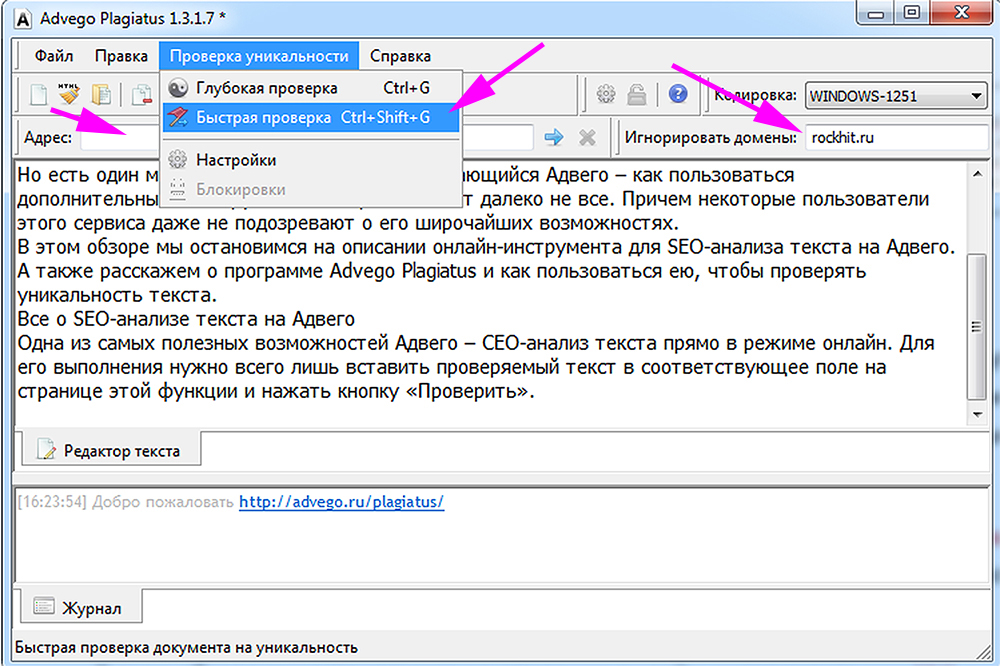
Then the program will show two values through the fractional line. The first number is the percentage of uniqueness, calculated by analyzing individual fragments of text of different lengths for matches with other texts published on the Internet. And the second is the percentage of uniqueness of the entire text at once, which determines the probability of rewriting. Even if the first value is equal to 100%, and the second value is less than 70%, the program will write "Maybe, rewrite".
Also read : How to choose a domain for a website .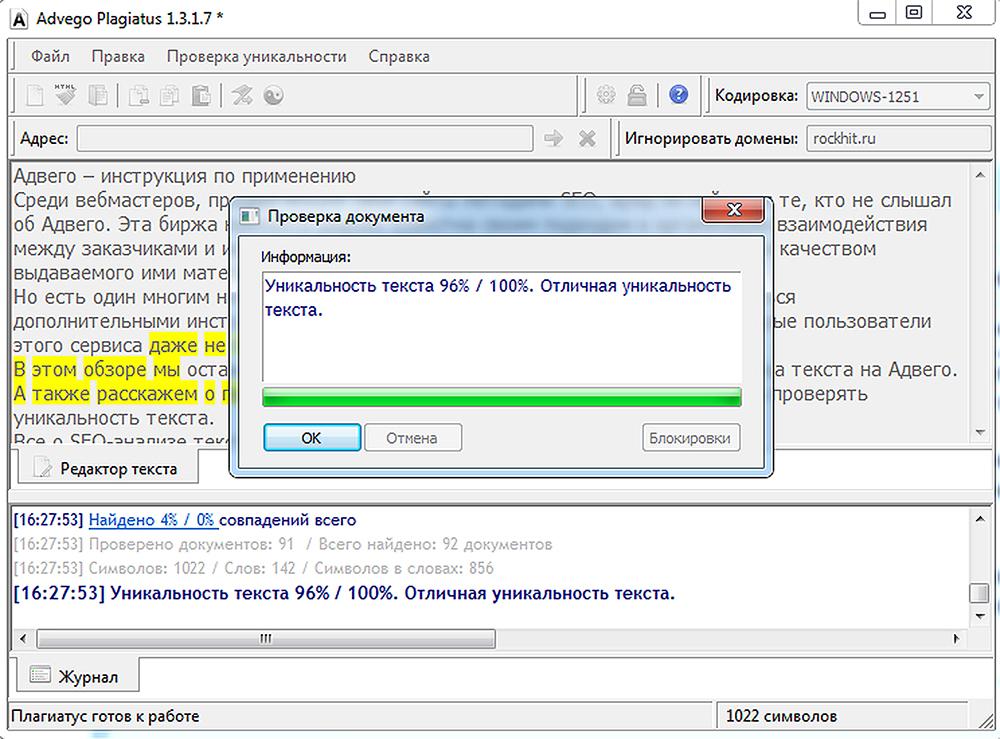
After the analysis, some fragments of the text are highlighted in a certain color:
- Yellow shows non-unique fragments that Advego considers plagiarized. The more they are, the smaller the first number will be. To increase it, you need to paraphrase the phrases highlighted in yellow, rewriting them in a different way.
- The blue color shows non-original phrases that the program calculated by rewriting. The more similar fragments, the smaller the second number will be.
For non-unique sentences, the program shows the URL of the site where a full or partial match was found (that is, the source from which the copywriter may have plagiarized the text). And nearby displays the percentage of matches with the original.

Depending on the customer's requirements for the uniqueness of the text, copywriters have to improve these numbers. Most often, they look at the first indicator. But sometimes customers demand that the second number is also high enough.
For advanced users, Advego Plagiatus has additional options where you can specify:
- size of shingle and search phrase;
- a list of search engines in which the text will be checked;
- timeout, etc.
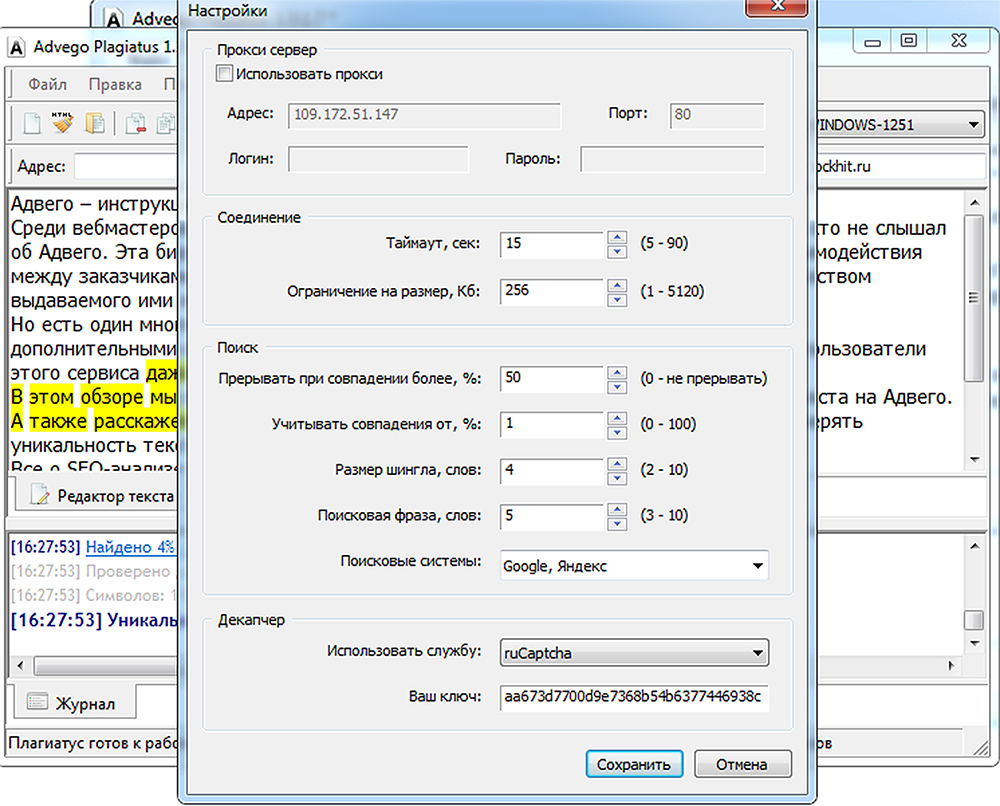
But it is better not to touch anything and use the standard parameters set by default (unless the customer requires otherwise).
Online uniqueness check
In addition to the desktop program, there is also an online Advego Plagiatus service. Using it is even easier: just insert the text and run the check. After 1-2 minutes, the service will show the percentage of uniqueness in the same tab.
But online verification is paid, so most people use the free Advego software.
Results
Now you know how to use Advego Plagiatus, its online version and SEO text analysis tool. All of them are very useful when working on the internal optimization of the site. After all, with their help, you can check the uniqueness, fluidity, and complexity of the text, and then achieve the optimal values (if they are higher or lower than the recommended ones).
All these parameters are taken into account by search engines. If Google or Yandex detect low uniqueness or strong spam, they will lower the site's position. And if they see that these parameters are normal, then on the contrary, they will show the site at higher positions.






